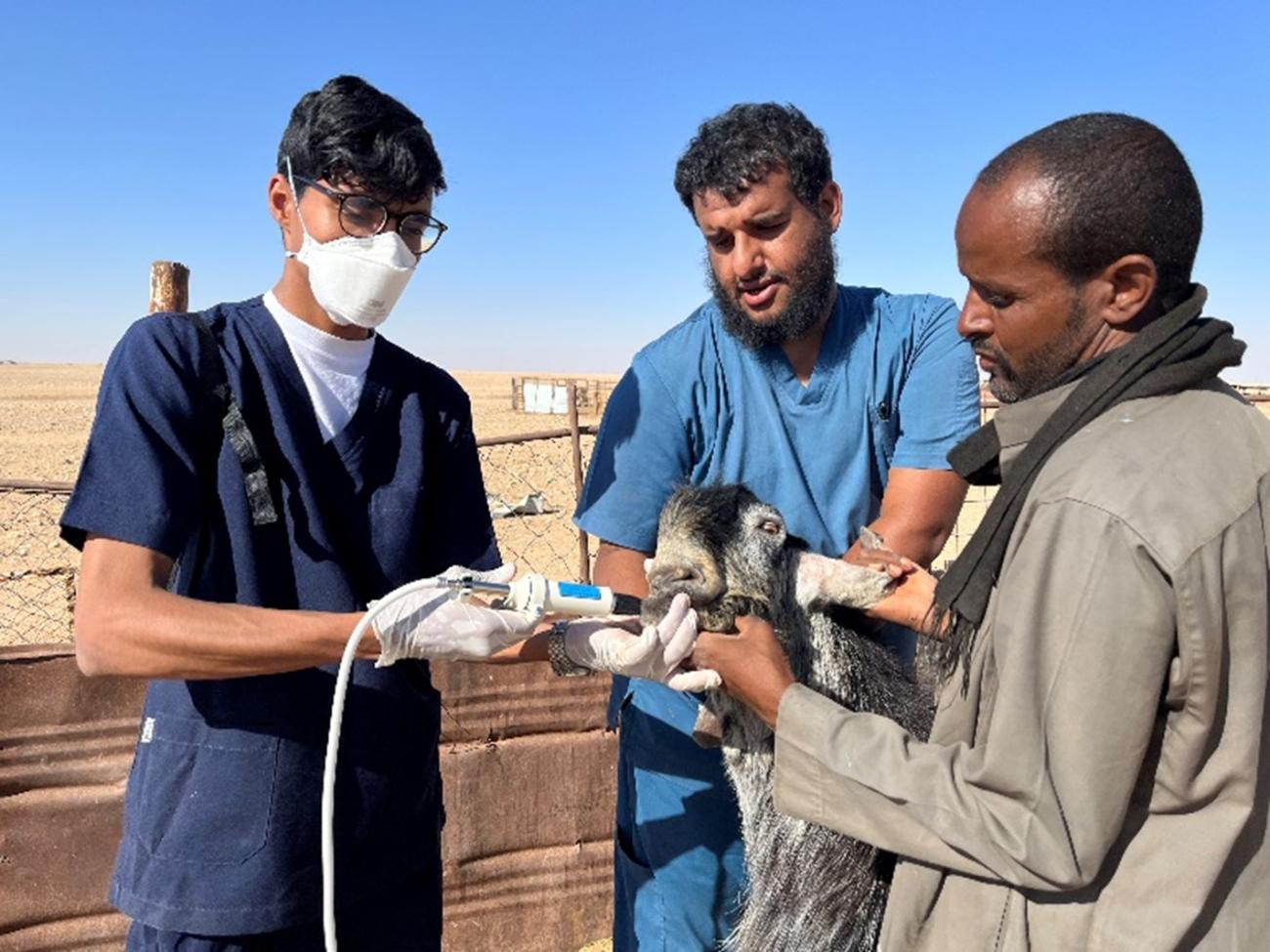Transforming Livestock Productivity and Empowering Rural Communities

Success story of the Farm Service Delivery Model in Saudi Arabia.
In rural Saudi Arabia, an innovative initiative is increasing livestock productivity and improving income generation for smallholder farmers and herders. A Farm Service Delivery Model (FSDM) is being launched in the Northern Border and Jazan regions in partnership with the Ministry of Environment, Water and Agriculture (MEWA) of Saudi Arabia, as part of the ongoing project on Sustainable Rural Agricultural Development (SRAD) project implemented by Food and Agriculture Organization of the United Nations in collaboration with Saudi Reef and MEWA. This initiative addresses key constraints faced by goat and sheep owners, such as poor productivity, high mortality, limited water resources and vegetation in challenging terrains.
A Farmer-Centric Approach
Recognizing the challenges faced by small-holder farmers, the FSDM offers a suite of targeted services tailored to their specific needs. Trained local animal production technicians visit farms on a predetermined schedule to deliver essential and critical services and empower farmers with the tools and knowledge required for pest and disease management, animal nutrition, hygiene standards for milk products. Inputs such as vaccines, medicines, small farm equipment and disease diagnostics are provided by FAO and MEWA for these pilot programmes. Service delivery operations are monitored through a dashboard, allowing the field technician to analyze data, identify bottlenecks and introduce improvements.
Services that Make a Difference
The success of the FSDM lies in its targeted, focused and impactful services:
- Animal identification and tracking: Farmers benefit from precise livestock tracking and management systems, enabling better oversight of their herds.
- Guidance on husbandry and feeding practices: By adopting best practices in animal nutrition and welfare, farmers have observed significant improvements in their livestock’s health and productivity.
- Breeding and reproduction management: Advanced techniques like ultrasonography have helped farmers optimize reproductive performance, ensuring healthier offspring and increased fertility rates.
- Preventive healthcare: Regular vaccination and deworming schedules have significantly reduced disease risks, contributing to healthier herds.
- Curative health care on call: Immediate responsive treatment for livestock health issues ensures timely intervention and minimizes losses.
- Housing and welfare advisory: Improved animal housing designs have led to better health conditions and overall productivity.
Farmers who have adopted the FSDM have experienced notable outcomes, including:
- Increased Productivity: Lambing rates have increased from 0.7 to 0.9 lambs per ewe annually, transforming livestock yields and boosting income.
- Improved Livelihoods: Enhanced healthcare and preventive measures have reduced disease-related losses, allowing farmers to focus on growth and development.
- Empowered Communities: Equipped with better tools, knowledge, and resources, smallholder farmers are now key contributors to rural economic development.
A vision for the future
“The results are encouraging, but we must reach more farmers, as sheep and goat ownership is integral to the rural lifestyle across Saudi Arabia,” said Kakoli Ghosh, Chief Technical Advisor, Sustainable Rural Agricultural Development Project.
The success of the FSDM in pilot regions presents a replicable model for expansion and uplifting rural communities. It may also create business opportunities for local youth as service providers. By focusing on sustainable practices and farmer empowerment, the FSDM is transforming livestock productivity and rural agrifood systems through a new roadmap for better production and better livelihoods.







